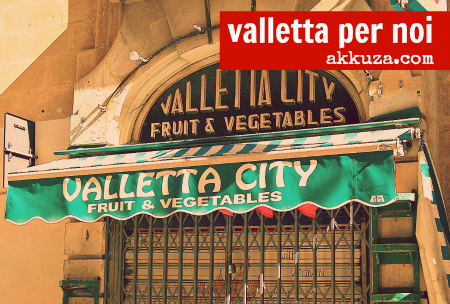I only started using the Sliema – Valletta ferry after I had moved to Luxembourg for work. When I still lived in Malta the ferry was something that only tourists did. They had time. They could afford to take in the splendid views of Marsamxett. Not for me the dilly-dallying. My commute to the city was for work and time was money, so I dutifully got in line with the hundreds of other sensible car-owners (one per-car) and sucked in on the carbon emissions all the way through the Porte des Bombes and Saint Anne Street.
These days whenever I come back home I always make it a point to use the ferry. At least once. Sure it’s not the same deal as walking into the majestic city through its main gate but the arrival by boat seems to be so much more fitting for the city built for gentlemen. This was, after all, the city built by a sea-faring order that threw its weight around the middle sea. Ignoring Valletta’s littoral element is like thinking of London without the Thames or Venice without its canals.
Majestic the city may be but its majesty exists also because of the sea. At the foot of the bastions that skirt the Humble City lie the lapping waters of the Mediterranean – a constant reminder of the place of the Most Proud city in time and space. The sea wraps the gated peninsula – alternating idyllic moments of calm with sudden bouts of fury, when Poseidon and Aeolus unleash their power and besiege its walls all over again.
Gates. The city does not hide its nature. It will always remain a fortified city – no matter how modern it can get. Internationally renowned architects may do away with doors and barriers and introduce open spaces but you will always have a sense of foreboding when you approach the Proud City.
Will it welcome you once more? Will it let you walk lazily through its deserted streets on a hot August afternoon, and allow you to stop at one of the myriad eating joints that have sprung along its streets? Will it engulf you in the darkness of the night as you drunkenly attempt to quit its narrow streets and newborn drinking holes? Will the ghosts of Valletta past entrap you in a winding desolation of brothels, murders and intrigue?
Or will Valletta be itself and gracefully adorn every step that you take on its streets with memorable moments of historic ecstasy – from the smallest nook to the grandest palazzo? Will its church bells toll happily to welcome the many sons and daughters of the nation who find refuge in its proud symbolism? Will it let the sweet winds cool you as they breeze through its narrow, shaded streets? Will Valletta be the capital for everyone?
I have never left Valletta feeling unsatisfied. The sense of foreboding is quickly replaced with a renewed sense of belonging. I was not born or brought up in Valletta but it is my capital. Any street in Valletta is my street. Our street. Every cobbled step down Republic Street, every mooring place near the waterfront, every smell on Lascaris Wharf and every balcony on Saint Barbara’s Bastion. They’re all there to tell you that no matter how far from Malta you may be, the city of gentlemen is there to remind you that there is a place that you can call home.
This post first appeared as a guest post on the Valletta 2018 Foundation’s Official Blog.

